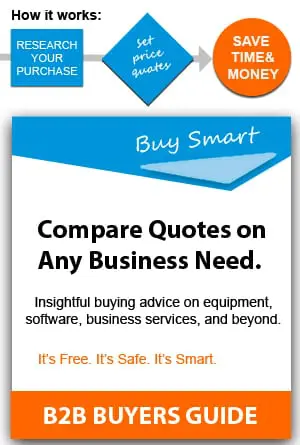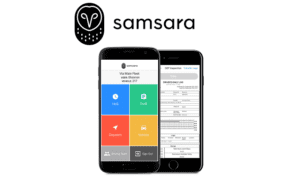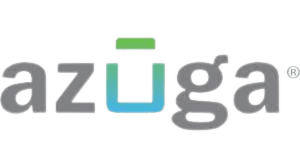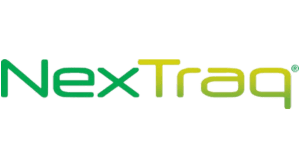How Much Does GPS Fleet Tracking Software Cost in 2024?
Fees for GPS fleet track software range from $35/month per vehicle for basic systems to advanced systems laden with features for $63/month or more. Compare costs from suppliers in your area:
COMPARE QUOTESThe cost of GPS fleet tracking software can vary significantly based on several factors, including the type of software, the specific solutions offered, and the industries it serves. Here’s a breakdown using headlines, bullets, and sub-bullets with increased indents:
 GPS Fleet Tracking Software Cost Breakdown
GPS Fleet Tracking Software Cost Breakdown
- By Software Type
- Standard Tracking Software
- Cost Range: $15-$30 per vehicle/month
- Features: Basic tracking, route history, geofencing
- Advanced Tracking Software
- Cost Range: $30-$60 per vehicle/month
- Features: Real-time tracking, detailed reporting, driver behavior analysis
- Standard Tracking Software
- By Solution Offered
- Asset Tracking
- Cost Range: $20-$45 per asset/month
- Ideal For: Tracking non-vehicle assets like equipment, containers
- Fleet Management Solutions
- Cost Range: $35-$75 per vehicle/month
- Includes: Maintenance scheduling, fuel management, compliance management
- Asset Tracking
- By Industry Served
- Transportation and Logistics
- Cost Range: $25-$50 per vehicle/month
- Specific Needs: Route optimization, delivery tracking
- Construction
- Cost Range: $30-$60 per vehicle/month
- Specific Needs: Heavy machinery tracking, job site management
- Public Sector (e.g., Government, Emergency Services)
- Cost Range: $20-$45 per vehicle/month
- Specific Needs: Emergency response tracking, asset utilization
- Transportation and Logistics
Additional Considerations
- Setup and Hardware Costs: One-time fees for hardware and setup ranging from $100-$500 per vehicle
- Customization and Integration: Additional costs for integrating with existing systems or custom feature development
- Volume Discounts: Discounts for large fleets or long-term contracts
- Contract Length: Longer contracts often have lower monthly rates
This breakdown provides a general overview, but prices can vary depending on the provider, specific features, and the scale of the fleet. It’s important to get quotes from multiple providers to find the best option for your specific needs.
COMPARE QUOTESFeatured GPS Tracking Solutions
Compare GPS Tracking Companies and Costs
There are dozens of companies providing fleet tracking services. Here are some choices, in no particular order.
Azuga
![]()
![]()
It tracks vehicles, gives driver scores, offers diagnostics, tracks maintenance, and more. The unique selling point to this software is its reward system. Safe drivers earn gift-cards and incentives delivered directly to their smartphones.
Highlights:
- Driver rewards program requires no extra admin work
- Speeds decision making with timely info
- No termination fees
- Drivers have real-time safety scores available
- Mobile app monitors texts and calls while moving
- Free trial available
Cost:
Azuga’s GPS fleet tracking software offers a range of features and its cost varies depending on the specific services and features you choose. The software includes different plans that cater to varying fleet sizes and needs.
- BasicFleet Plan: This plan is designed for those just starting out or looking to sample fleet management features. It includes core tracking features like GPS tracking, alerts and notifications, driver scores, driver rewards, reports, and geofencing. The BasicFleet plan costs approximately $25 per vehicle per month.
- SafeFleet Plan: Building upon the BasicFleet plan, the SafeFleet plan adds additional safety and efficiency features. It includes everything in the BasicFleet plan plus features like SpeedSafe, distracted driving prevention, panic alerts, vehicle diagnostics, scheduled maintenance, and more. The SafeFleet plan is priced at around $30 per vehicle per month.
- CompleteFleet Plan: This is a comprehensive solution offering everything in the previous tiers, plus additional features for optimizing the fleet experience. It includes benefits like Azuga Coach for safety, FuelSaver for efficiency, and advanced informational features. Pricing details for the CompleteFleet plan aren’t specified and would likely require a direct consultation with Azuga for a customized quote.
Fleet Maintenance Programs by ManagerPlus


Highlights:
- Monitor and track maintenance for vehicles
- Deep drill down submenus for maintenance and systems
- Early detection of equipment and vehicle fatigue
- Fuel and oil consumption monitoring
- Work order automation
- Vehicle maintenance trend analysis
- Monitor vehicle service intervals by several parameters including mileage, hours, calendar dates, and more.
Cost:
The cost of ManagerPlus GPS fleet tracking software varies based on the chosen plan. There are two main plans available:
- Lightning Plus: Priced at $85 per user per month. It includes features like fleet repair/maintenance management, engine diagnostics, route planning, GPS tracking, asset registry, work order management, and more.
- Lightning Experience: Priced at $125 per user per month. It offers additional features such as fleet safety training programs, invoicing & billing, sales & purchase orders, warranty management, and others, in addition to the features included in the Lightning Plus plan.
NexTraq
NexTraq Fleet offers a comprehensive GPS fleet tracking and vehicle management system. It is priced in small fleet, medium fleet, and large fleet tiers. The cloud-based software offers reliability and access anywhere.
Highlights:
- Easy map tracking of each vehicle
- Tracks all activities- starts, stops, and length of time
- Route optimization and dispatch
Cost:
For a standard GPS tracking plan, a recent inquiry revealed that for a fleet of 20 vehicles, the costs were around $90 per unit, plus about $19.00 per vehicle per month for a one-year plan. These prices may vary based on the current year, the number of vehicles, and the specific services required. Additionally, NexTraq offers additional safety features in their Driver Safety package, which includes items like dashcams and driver’s vehicle inspection reports (DVIRs). For a three-year plan, the cost for outward-facing cameras was roughly estimated at $39.95, and for dual-facing cameras, it was around $42.95.
COMPAREBrickHouse Security GPS Fleet Tracking
![]()
![]()
Highlights:
- Real-time vehicles and assets tracking from any location
- Easy-to-understand performance reports for drivers and management
- 2 to 10,000 assets
- GPS geofencing alerts for off-route vehicles
- Free and unlimited lifetime technical support with automatic updates
- Cloud-based for any time, any device, anywhere access
Cost: Not Available/Published
COMPAREVerizon Connect
Top-rated Verizon Connect offers a features-laden fleet management system. Three different platforms (Verizon Networkfleet, Fleetmatics, and Telogis) focused on different aspects of management merged to create the largest company on this list.
These systems offer the largest global tracking networks, easily following an asset across oceans and highways for safe delivery. Hardware requires a trained technician to install. The software uses a combination of hidden hardware with a central dashboard.
Highlights:
- Strong customer service
- Easy-to-use
- Made to meet regulatory compliance standards (ELD, ISTA, etc)
- GPS geofencing alerts for off-route vehicles
- Engine diagnostics
- Safety alerts
Cost: The cost for Verizon Connect Fleet management software will fall somewhere between $23 and $27 per vehicle per month.
COMPARESamsara


Highlights:
- Strong core features (driver safety, fuel consumption, routing, and dispatch)
- Simple installation
- Meets regulatory compliance standards
- Easy to read dashboard
- Vehicle diagnostics
- Training options
Cost: The cost for Samsara Fleet management software will fall somewhere between $27 and $35 per vehicle per month.
COMPAREAT&T Fleet Complete
Another “Ma Bell” breakaway, AT&T Fleet Complete is a family of GPS-based tracking and management solutions. This fleet management system knits together information for operations management, mobile staff, and vehicles. This combination of services saves money and increases efficiency while maintaining regulatory compliance.
Highlights:
- GPS devices for two-way communication over the AT&T wireless network
- Uses hardwired modems for vehicles
- Uses hidden asset tracking transponders devices for trailers and valuable equipment
- Smartphones or tablets for devices for mobile staff
- Fleet Tracker, Asset Tracker, and Action Tracker for three different types of monitoring
Teletrac Navman
![]()
![]()
Highlights:
- GPS fleet tracking
- Two-way communication
- Safety alerts
- Compliance features
- Fuel use and idle monitoring
- Cost-efficient
Cost:
The cost for Teletrac Navman Fleet tracking software will fall somewhere between $25 and $35 per vehicle per month. For the typical company, the investment ranges between $450-$750 to cover all of their fleet.
COMPAREFleet Trax
Contract-free Fleet Trax offers a unique fleet tracking system that grows with your business. They have decades of experience in training and technical support for all types and sizes of fleets.
Highlights:
- No contract required
- Two-way instant messaging
- Dispatch and monitor your entire fleet
- Combination of devices (hard-wired, battery, or plug and play GPS trackers)
Automile
Reliable Automile is a top-rated, simple tracking solution with GPS and includes a data plan. Automile serves as an asset tracker, paper-free compliance tool, and vehicle monitor. Automile is driver-centric and offers fleet management tools with a driver in mind.
Highlights:
- Real-time tracking
- Accurate vehicle location with an on-demand update
- Real-time messaging
- Geofencing alerts
- Eliminate paper logs
- Free trial
Cost: Not Available/Published
COMPAREFleet Genius Fleet Management Software
Fleet Genius offers three tiers of pricing for different levels of service and fleet sizes. The cloud-based software is modestly priced. It uses an optional wireless OBD-2 vehicle diagnostics module.
It includes maintenance, tracking, and driver safety monitoring.
Highlights:
- Access vehicle data from anywhere with any device
- Combines on-board vehicle computer with a fleet management system
- Monitors preventive maintenance schedule and performance directly
- Tracks combination of inputs
Cost: Not Available/Published
COMPAREGPS Software Tracking Pricing Information
As noted, costs can vary widely. Most of the time, you are not purchasing the software directly. You are buying the full service.
The most basic service plans will likely cost between $20.95-$29.95 per vehicle per month. The most advanced GPS fleet tracking might cost up to $59 monthly per vehicle. Be aware of any extras you may need to supply or buy.
Get detailed quotes on your unique needs to accurately compare costs. Proper use of your GPS fleet tracking system reduces fuel costs, increases driver efficiency, and pays for itself in savings.
![]()
![]()
Purchase or Rental
There are benefits to either option. Renting your hardware devices eliminates the large upfront cost. The cost is added to your monthly telecommunications fee. Your hardware and service may be eligible for a volume discount, depending on the program you select.
Hardware Type
Your hardware choices will affect your bottom line. The purchase of a basic vehicle tracking device or asset tracking device costs about the same. However, the monthly satellite service fee can vary a great deal between vehicles and assets. In general, a vehicle tracker is more expensive monthly than an asset tracker.
Installation is another cost. Some GPS devices are a simple plug-and-play, while others are hidden in the wiring or attached like a “black box”. Sometimes there are additional add-ons to installation.
Update Frequency
Your monthly service cost can vary based on the volume of information you transmit. If you need your vehicle to frequently update its location (real-time vs. every 3 to 5 minutes, it is more expensive than an asset tracker that might check in twice a day. Update rates for assets are on-demand communications and measured by pings.
The more pings per day that you use, the higher the costs.
COMPARELook Out For Hidden Fees
Broadly, you can expect GPS software tracking prices to start around $15.00 a month for the most basic type of hardware and monitoring. More frequent check-ins or better hardware drive the price higher.
Always look for bottom-line costs. The cost of hardware, installation, monthly cell or network usage, etc. needs to be factored into your service bundle. Some packages offer a flat-rate or tiered package bundle, while others quote on a per-vehicle or asset basis.
Little add-in service fees, such as a network fee or analysis fee can add up. Some companies have extra fees if your vehicles regularly travel outside a certain geo-fence. Watch out for hardware extras like purchasing smartphones or tablets in addition to transponders.
GPS Fleet Tracking System Sample Costs
Below are a few examples of price facts for GPS Fleet Tracker Systems which will give you an idea of how much you will pay for your purchase.
- May reduce gas consumption by 20%.
- The cost will range between $36-$55 per month per vehicle tracked.
- Set Up Fee ranges from $0.00 to $30.
- Hardware costs $85 to $200 per vehicle.
How Does GPS Fleet Tracking Work?
Do you use an observer riding along with your driver to police their driving habits? Or do you choose some way of recording their surroundings and driving habits? Your fleet tracking software can provide you with this valuable information.
It is like, but not the same as time tracking software for drivers. GPS fleet tracking software use is efficient. It can make sure that vehicles and drivers are safe and where they should be at all times.
There are hardware and software components for GPS tracking. Some hardware is easy to plug-in and attaches to your vehicle ODB II port. Other sensors require more sophisticated installation. Most GPS hardware can be self-installed.
Fleet tracking is a form of telematics, the intersection between telecommunication and information. The satellite information is then interpreted through the software. This provides you with a central collection point for all your vehicle data.
You have access to real-time status reports and alerts sent directly from the vehicles to the software. The most effective programs offer dashboards, exception monitoring and more.
Why Do You Need Fleet Tracking?
Most fleet managers work to grow their businesses. Their fleet tracking system is the first tool for bottom-line discipline.
Use the information dispatching drivers. Follow fuel use. Track asset locations and log driver service hours. The ELD Mandate of 2017 requires driver hour monitoring.
GPS vehicle tracking helps companies save money through driving efficiency. Monitoring encourages reduced driver speed. Reduced speed means money saved on gas and repair costs.
Reduced engine wear decreases repair costs and increases resale value. Reduced speed also results in fewer speeding tickets and accidents. Many insurance companies offer discounts for vehicles with tracking systems and for safer driving.
Use Fleet Tracking to Increase Driver Efficiency
In addition to monitoring driving speed, your GPS vehicle tracking can also monitor each stop. Information about the length of time spent on each delivery, time in transit and time idle allows you to schedule each route.
You can plan each driver’s week to optimize their time. Through data analysis, you can prove to drivers that suggested systems and work habits are efficient. A GPS tracking system monitors driver start time and end time, how long your driver spent on breaks, and whether the vehicle is used for unauthorized activities.
Its ride-along spy gear for management. The real question is: how can a company afford NOT to use GPS tracking? Fleet tracking software can prove where a vehicle was at any time. When you need proof of performance, your vehicle history, hour by hour, is available on demand.
COMPARE QUOTESFleet Management Software Showcase:
Fleetmatics
Serving over 42,000 customers like Time Warner cable DIRECTV, and Mediacom, Fleetmatics has earned recognition from BERG Insight, Effie awards, and Stevie American business awards. They have more than 115 billion data points collected and will increase productivity and filed efficiency. Expect to pay about $26 per vehicle per month and about $99.50 for hardware (per unit). Know what’s going on in the field in real-time so your company and management team can easily dispatch more efficiently, improve customer satisfaction, and largely reduce or eliminate time spent calling drivers for updates. Managing your trucks, vans, and field workers on a whiteboard start out simple, but as soon as one thing changes, it can take a lot of time and a number of phone calls to get the schedule back under control. Fleetmatics works and lets you see everyone’s availability and open time slots in an easy-to-read format, this makes it so much easier when assigning jobs on the fly.
![]()
![]()
NexTraq
Pricing for NexTraq runs $34.95 per truck plus a nominal fee of $179 for software. Packed with tracking info on routes & stops, speed, and maintenance info this is a great GPS fleet tracking solution. Designed for reliability and super ease-of-use, the comprehensive NexTraq® Fleet Tracking software is the answer to all your needs. Comprehensive doesn’t have to be complicated. NexTraq gives you the tools you need for complete fleet management. Nextraq will make your dispatcher’s work much easier and simplify the oftentimes tedious process of creating, assigning, and dispatching service jobs. NexTraq’s comprehensive dispatch solution maximizes fleet efficiency and improves your customer service across the board.
![]()
![]()
Rhino Fleet Tracking
The price for Rhino Fleet Tracking Software is just $16.95 a month along with $34.95 for equipment and hardware needed to work with your GPS software. Solutions include vehicle trackers, trailer trackers, and battery-powered trackers. Rhino Fleet Tracking systems allow those that manage fleets of trucks to monitor their vehicles and equipment. The installation of a GPS fleet tracking system allows drivers, managers, and staff to substantially improve their communications, profits, and security. This is a great way to control truck/van speeds, decrease idle times, and reduce vehicle misuse.
![]()
![]()
Telogis
Fortunately, Telogis GPS fleet tracking software requires no hardware investment, but the monthly cost for service is priced a tad higher at $40. Still a good price for reporting and tracking your fleet. Productivity is a numbers game and your ability to get more work completed with less cost and with fewer resources. Telogis gives you real-time access to your fleet’s data which greatly improves planning and reduces overtime and unauthorized vehicle use. From rapid deployment to automated compliance and reducing insurance cost Telogis is a great product. Telogis mobile work order software provides a range of DOT compliance features that make it easy for your drivers to stay legal and for you to identify areas that need attention, such as HOS violations or missed inspections.
![]()
![]()
US Fleet Tracking
From 3g GPS trackers to cloud Sat 3 tracker US Fleet Tracking carries a variety of products to track anything that moves. US Fleet Tracking is a GPS tracking manufacturer providing Internet-based access to LIVE vehicle tracking and asset management. From how to vides to training you can’t go wrong with this solution.
![]()
![]()
Related Industry Terms: Drivers, Trucks, Vehicles, Fuel, Asset Tracking, Route Planning and Mapping, Dispatch Software, Fault Monitoring, Driver Behavior, DOT Compliance
Compare Direct Quotes Fast
Determine your best choices from our list of standout companies. You can do a deep dive into service, prices, and comparisons with your tool. Finding GPS tracking software prices is a project, but our tool makes it easier.
Don’t forget to look at all costs, hardware and software, upfront costs, installation and contract length. You also need to consider ease of use, training and technical support.
10 Reasons You Need GPS Fleet Tracking for Your Business
- Improved Fleet Efficiency
- Route Optimization: Ensures drivers take the most efficient routes, saving time and fuel.
- Vehicle Utilization: Better use of fleet assets by tracking usage and availability.
- Enhanced Driver Safety
- Monitoring Driver Behavior: Identifies risky behaviors like speeding or harsh braking.
- Training Opportunities: Data-driven insights for driver training and safety programs.
- Reduced Fuel Costs
- Minimizing Idle Time: Tracking and reducing unnecessary vehicle idling.
- Optimal Route Planning: Reduces miles driven, thereby saving fuel.
- Better Customer Service
- Accurate ETA Information: Provides customers with precise arrival times.
- Real-Time Updates: Enables proactive communication with customers in case of delays.
- Theft Recovery and Security
- Immediate Location Tracking: Quick response in case of theft or unauthorized use.
- Geofencing Alerts: Notification if vehicles leave a designated area.
- Maintenance Management
- Proactive Maintenance Alerts: Automated reminders for regular maintenance tasks.
- Vehicle Health Monitoring: Tracks vehicle diagnostics to prevent breakdowns.
- Compliance With Regulations
- ELD Compliance: Assists with Electronic Logging Device mandates for driver hours.
- Other Regulatory Requirements: Helps comply with industry-specific regulations.
- Data-Driven Decision Making
- Detailed Reporting: Provides insights into fleet operations and driver performance.
- Trend Analysis: Helps identify long-term operational trends and areas for improvement.
- Increased Accountability
- Time Tracking: Accurate logs of driver work hours and vehicle usage.
- Proof of Service: Verification of job completion with location and time data.
- Scalability and Flexibility
- Adapts to Business Growth: Scales easily with the expansion of your fleet.
- Customizable Features: Solutions can be tailored to specific business needs.
Implementing GPS fleet tracking can significantly impact operational efficiency, cost management, and overall service quality in your business. Each of these benefits contributes to a more streamlined, productive, and profitable operation.
COMPARE QUOTESFind GPS Fleet Tracker Software Near You and Compare Up To Five Money Saving Quotes
Want a Fair Price on GPS Fleet Tracking Software? It’s simple:
-
Enter your information just once
-
Get Quotes From Best Priced Fleet Tracking Management Providers in 1-Day
-
Compare Prices and Decide
Article Resources:
https://techcrunch.com/2018/12/03/report-amazon-is-testing-cashierless-checkout-for-larger-stores/
https://www.techradar.com/news/car-tech/telematics-what-you-need-to-know-1087104
https://www.businessinsider.com/what-is-eld-mandate-trucking-2018-10


